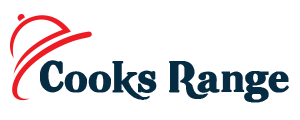
Food hygiene legislation is a critical aspect of running any food business in Ireland. The rules set out in the food hygiene legislation (Regulation 852/2004/EC) apply to all businesses, regardless of size or type. This legislation sets out the general requirements on food hygiene, including premises layout, temperature control, HACCP, equipment, transport, waste, personal hygiene, and training. Compliance with this legislation is essential to ensure the safety and quality of the food produced by your business and to avoid fines, legal action, and reputational damage.
In addition to Regulation 852/2004/EC, there is also legislation on the general principles of food law (Regulation 178/2002/EC), which makes it illegal to place unsafe food on the market. This legislation reinforces the need for compliance with food hygiene legislation and emphasizes the importance of ensuring that the food produced by your business is safe and suitable for consumption.
For businesses that handle foods of animal origin, there is additional legislation to adhere to. Regulation 853/2004/EC sets out specific hygiene rules for these types of products, including the need for approval before commencing trade. Compliance with this legislation is crucial for businesses to ensure the safety and quality of the food they produce and to avoid legal action and reputational damage.
To assist businesses in complying with food hygiene legislation, there are several guidance documents available, including those provided by the National Standards Authority of Ireland. These guidance documents, such as I.S. 340:2007 – Hygiene in the Catering Sector and I.S. 341:2007 – Hygiene in Food Retailing and Wholesaling, offer practical advice and recommendations on how to comply with food hygiene legislation and ensure the safety and quality of the food produced by your business.
In conclusion, compliance with food hygiene legislation is essential for all food businesses in Ireland. By understanding the rules and general requirements set out in the legislation, adhering to the principles of food law, and following specific hygiene rules for foods of animal origin, businesses can ensure the safety and quality of their products and avoid legal action and reputational damage. Utilizing guidance documents and seeking advice from relevant authorities can help businesses comply with food hygiene legislation and operate with the highest levels of quality and hygiene.
1 Comment
Comments are closed.

FSAI Launches Free Food Safety Training Portal - Commercial Kitchen Equipment Ireland | Cooks Range
[…] 51,000 food businesses poised to benefit, this digital training platform heralds a new era of food safety and hygiene compliance. Say goodbye to outdated training methods and hello to a comprehensive, user-friendly platform […]